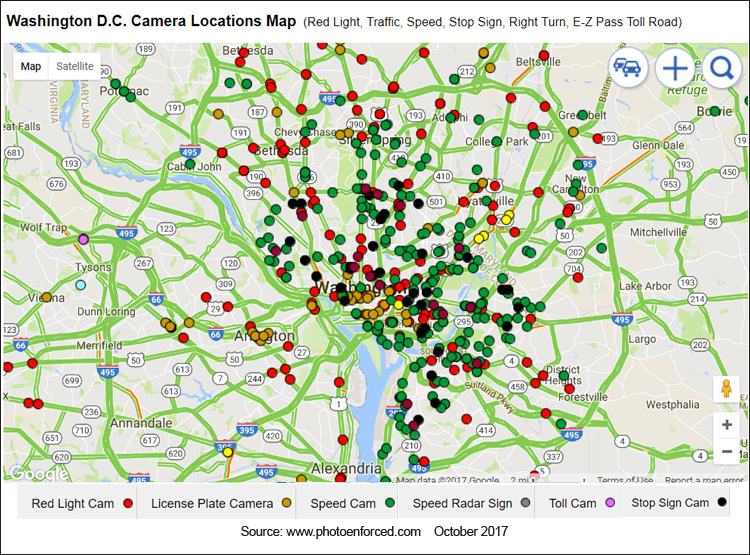Enabled by contributors to our Spring 2017 Campaign, the NMA is pursuing its 2017-18 National Legislative Agenda in Washington. More precisely the current focus is on two of the agenda items – eliminating federally funded ticket blitzes and restricting the bounds of civil asset forfeiture.
Part 2 of this newsletter in coming weeks will describe our lobbying efforts to stop the indiscriminate government seizure of and profiteering from motorists’ property. The topic today is another form of robbery, one in which state law enforcement agencies are incentivized by the feds to conduct year-round, high-visibility traffic enforcement campaigns where safety engineering takes a back seat to ticketing activity as justification for more highway policing.
Communities know where their bread is buttered. Take Henderson, Nevada with a population of just under 300,000 as a for-instance. Just eight months into 2017, Henderson police completed their eighteenth enhanced enforcement action of the year with the support of $200,000+ of federal aid. Multiply that ticketing effort and funding by a few hundred similar programs run across the country and you get an idea of the magnitude of annual revenue generation that is enabled through the federal program.
That is one of the talking points that the NMA developed with Rob Talley, our Washington lobbyist, to persuade Republican, Democrat, and independent lawmakers to limit the budget of the National Highway Traffic Safety Administration to finance this perpetual highway robbery.
Ironically our effort has been helped by another federal agency that is piling on. Earlier this year the National Transportation Safety Board (NTSB) stepped outside of its normal aviation confines to issue a sweeping call for the states to get with it by lowering speed limits (after abolishing that “obsolete” 85th percentile method of determining safest travel speeds) and by installing speed cameras everywhere, even in states that prohibit the use of automated enforcement.
(As an aside, one of the most vocal members on the NTSB board promoting the “reducing speeding-related crashes” report is T. Bella Dinh-Zarr. She joined the board as vice chair in March 2015, timing that roughly fits the initiation of research for the report. She is a public health scientist, former employee of the Center for Disease Control and Prevention, and is a self-described avid walker and bicyclist.)
Talley sees that as an overreach of command-and-control enforcement that will help us organize opposition on Capitol Hill. After all, there can’t be too many drivers in the District of Columbia who haven’t been victimized by a camera ticket of some sort. Take a look at the following map of camera placements in the area, a graphic that you can be sure is among our lobbying materials. The Washington Post reported an increase of speed camera citations from 276,000 to 994,000 in the District over the last decade while ticket revenue from those cameras climbed from $20 million to $99 million. Is it safer to drive yet?
Higher resolution would show just how densely clustered red-light, speed, license plate, stop sign and other types of ticketing cameras are in the area. (Is it any wonder that Washington DC outdistanced all other states as the entity that treats motorists the worst in this 2014 NMA study?)
Our lobbying message to federal legislators is this: Highway safety programs should be evaluated with safety performance metrics, not activity-based goals that can lead to questionable motivations. The effect that ticket-blitz enforcement campaigns have on safety is debatable. What isn’t debatable is that making funding contingent upon meeting certain activity levels is a direct incentive for state and local law enforcement to implement a quota system. At a time when we desperately need stronger bonds of trust and respect between the nation’s 250 million licensed drivers and police agencies, the current system is only making the situation worse.
Let’s be realistic, we are facing an uphill battle against an entrenched, self-perpetuating, money-making machine. If we can sway a few politicians – perhaps those from states that don’t like being told by the NTSB to ditch their laws against photo enforcement – we’ll have something to build upon.







